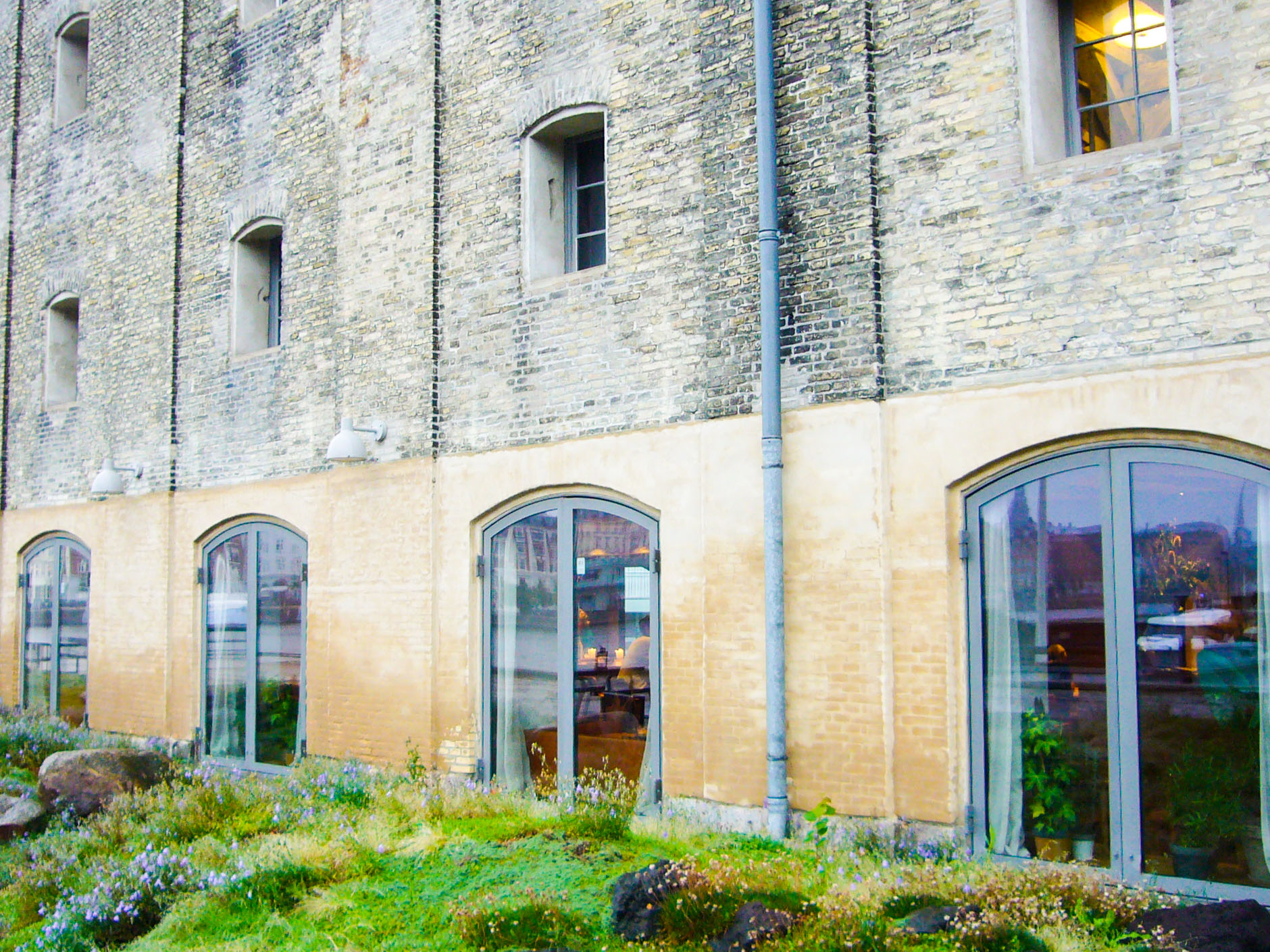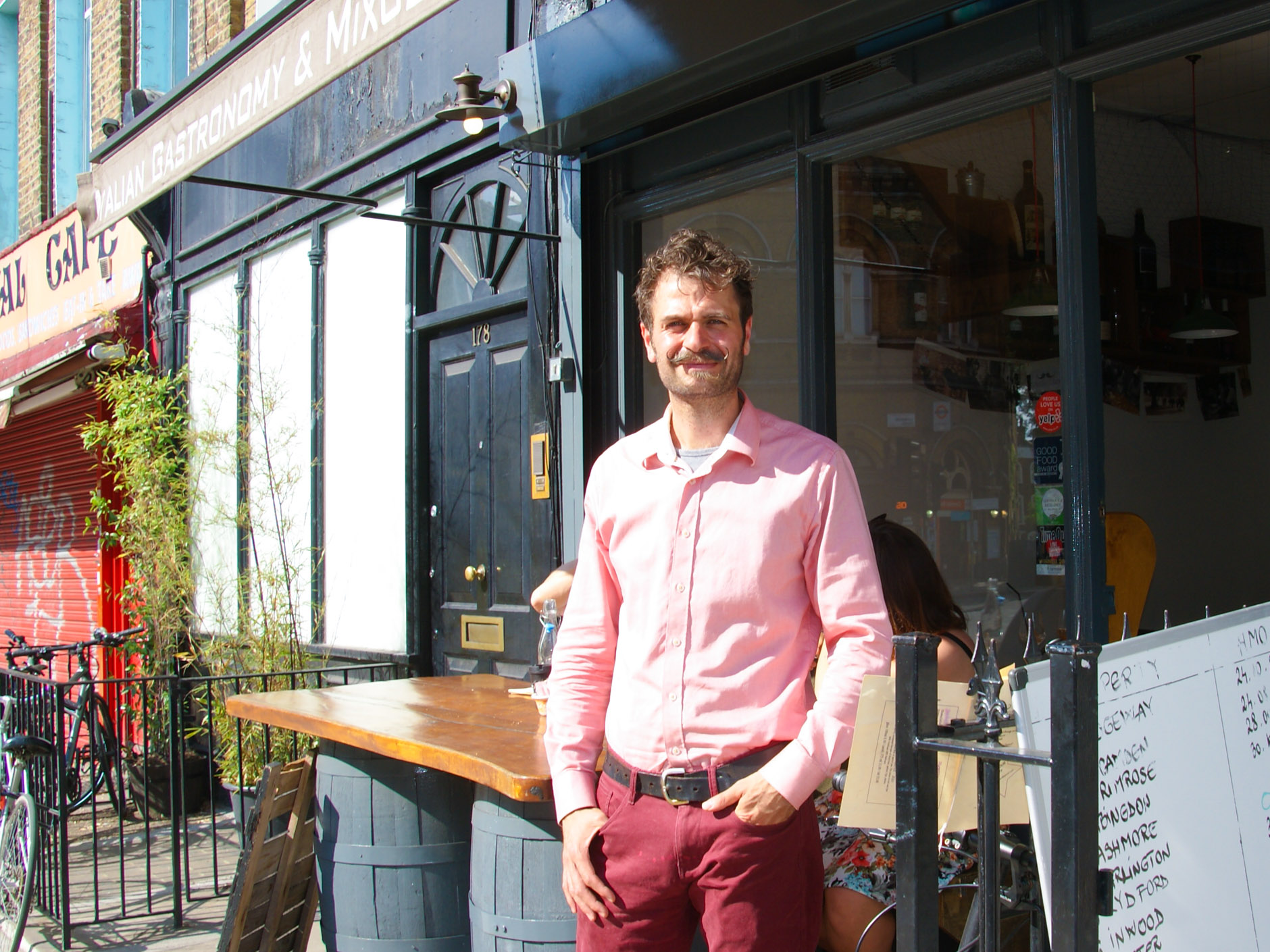Palate writer Amanda David (AD) met with Mehmet Murat (MM), owner of Embassy Electrical Supplies – part electricians’ consumables, part Cypriot/Turkish food store of dreams, where he sells olive oil that has been hailed as the best in England.
Mehmet Murat is not just one of London’s most charming shopkeepers but also one of the most knowledgeable. He can talk you through a rewiring project, find you a replacement fuse – and explain exactly how the olive oil from his farm in Cyprus is pressed.
AD: Mehmet, you’re an electrician by trade. How did you come to own this shop?
MM: I did my apprenticeship with a company in the City then became self-employed and travelled round the country working in Wimpy bars and Mecca bingo halls. Then I bought this building so I could live upstairs and work downstairs. I opened the electrical shop a few years later, in 1982, as a continuation of that.
AD: Where did the olive oil come in?
MM: In the 1940s my father was the village barber in Louroujina, Cyprus. He also used to travel round the island for the Turkish Cypriot leadership, sourcing mules which were sold to the British Army. He would get his commission, come home and use the money to buy plots of land just outside the village, where he and my mum planted olive saplings.
In 2002 my father passed away. I took over the farm and olive groves and decided I was going to start bringing the oil over. I had a few containers here by the counter and it was selling well. Then an American lady came in for some lightbulbs, bought some olive oil and ended up writing about us in New York magazine: ‘England’s best olive oil, available only at an electrician’s shop in Clerkenwell’. Everything started from that; we had people coming in every day to try the oil. We had reps from Sainsbury and Tesco come in, although we couldn’t supply anything like the quantity they were after. We were written up in quite a few of the papers and were on Gordon Ramsay’s Ultimate Cooking in series 7 and BBC’s The One Show; all from Jennifer Kabat coming in to buy a lightbulb.
AD: There’s a whole wall of fabulous herbs, oils and produce here; was it just olive oil you brought over initially?
MM: Just the olive oil, yes. I had a stall at Whitecross Street Market and started selling the oil there as well. There were other traders selling olive oil but when people found out that I produced the oil from my own olive groves they were really interested. Then I started to bring over the olives – the typical olives that we have in our village, just dry-cured black olives and cracked green olives dressed with garlic, coriander seeds and lemon juice, which we call ‘chakistes’. All the women in the village get together to produce them. They used to crack them with large stones but now there is a contraption that cracks a handful at a time. When we pack them we put coriander seeds in there, so when you get them home just add some crushed garlic, finely-chopped lemon (with rind), a squeeze of the lemon juice and some olive oil.
Mehmet hands me vacuum-packed black olives.
For the cured black olives, we get large plastic containers, put a pile of salt in the bottom and then a layer of olives which have been cleaned and drained, then another layer of salt and so on. We seal the container and then every day that gets rolled, which gets the salt right into the olives so they start to release their bitter juices. After about 25 days you open the container and taste them. You can put them back and keep rolling them if you want them a bit sweeter, it depends how you like them. Try grilling or barbecuing them; you can serve them with lemon juice, olive oil and some of this oregano.
Mehmet picks a tall bouquet of dried oregano from the shelves.
AD: I love the smell of this; it’s like aromatherapy!
MM: That’s wild oregano. We sell a lot of that to Selin Kiazim’s restaurant Oklava; they take these big bunches of it and finish dishes at the table by gently tapping it over the plate. You can also make tea with it.
AD: How much olive oil did you bring over to start with and how much do you bring over now?
MM: We brought over a ton on the first occasion and I was bottling it all myself. I used to own the pub up the road here – I had it as a restaurant then – and the whole basement was laid out as storage for the oil. We had an area set aside when we used to pour the containers of olive oil into large barrels, fill the bottles using a manual pump and then label them. A ton of olives works out as a thousand one-litre bottles. Now I suppose we’re doing ten to twelve tons a year – but it’s bottled before it gets here!
We produce black olive oil as well now. That’s not extra virgin but the process is more involved so it’s a bit more expensive. The olives are picked at the same time of the year. We dry them on the rooftops and terraces, then we boil them and then we press them; that produces a distinct dark olive oil, intense in flavour, with a strong taste of black olives. Traditionally in Cyprus we use it in a dish of dried broad beans or black eyed beans which have been boiled with kale or courgettes, then dress them with the black olive oil and lemon juice.
AD: That’s a lovely image, the olives drying on the rooftops. So what makes your olive oil so good?
MM: I think the oil from olive trees in Cyprus is special. We don’t let our trees get too big so they’re easier to pick from. Then we pick the olives when they are green/purple and get them to the press as quickly as possible without piling them too high and compressing them, because that damages them. If you let the olives turn completely black they will produce more oil but it will have a higher acidity. We also use a very traditional method of pressing.
Recently we realised that we harvest our lemons at the same time of the year as we harvest the olives, so the next time we went to the press we took a few cases of freshly picked lemons with us. We threw them in with the olives and the whole mill was filled with this incredible aroma, so we now make lemon, basil and chilli-infused oils. We produce pomegranate molasses as well; in Turkey they call that black lemon juice, because people use it if they run out of lemons.
Mehmet, despite my protestations, piles things in a bag for me to take home and try: cured olives, lemon-infused oil, wild oregano and some ingredients unfamiliar to me.
AD: I’ve had capers and caper berries but what are these?
MM: These are caper shoots, picked before the berries are formed. We go into the mountains near my farm and forage for the wild caper shoots before they flower. You can rinse these off and just serve them with lemon juice and olive oil, or use them in a salad.
I’m entranced. Mehmet’s knowledge and enthusiasm bring his village and its traditional Cypriot dishes vividly to life. He picks up another jar, then some small packets from the shelves.
MM: Have you ever tried these? They are pickled unripe almonds. Jamie Oliver came in here a few years ago, bought a jar of these and wrote an article saying they were gorgeous shaved into a salad. I eat them with a glass of wine, like olives. And these are dried olive leaves; you can simmer these in water for eight minutes and make tea with it. The other thing we use them for in Cypriot tradition is to burn them like incense if someone moves house or has a new baby; it’s to ward off evil spirits, like people do with sage.
AD: What proportion of your business comes from the electrical supplies compared to the oil and other produce?
MM: I’d say the olive oil is more than half; not much more, but it’s gone past the halfway mark now we sell online as well.
AD: Didn’t people find it odd that you were selling olive oil along with fuses and fluorescent tubes?
MM: In my village, if you were the local barber and you also owned some of the olive groves, it would be perfectly normal for people to pop in to get their hair cut and ask you to put a couple of litres of olive oil aside for them. That’s how business is done in Cyprus and so when I started bringing the oil over, I didn’t think anything different. Looking back, I think it got more exposure because it was quite unusual here.
AD: Certainly electrical shops have never been so appealing! Thank you Mehmet, and be sure to put aside some oil for me too please!
MM: No problem – thank you!
Embassy Electrical Supplies is located at 76 Compton Street, London EC1V 0BN. You can also order olive oil and Mediterranean produce at https://mroliveoil.com/.






